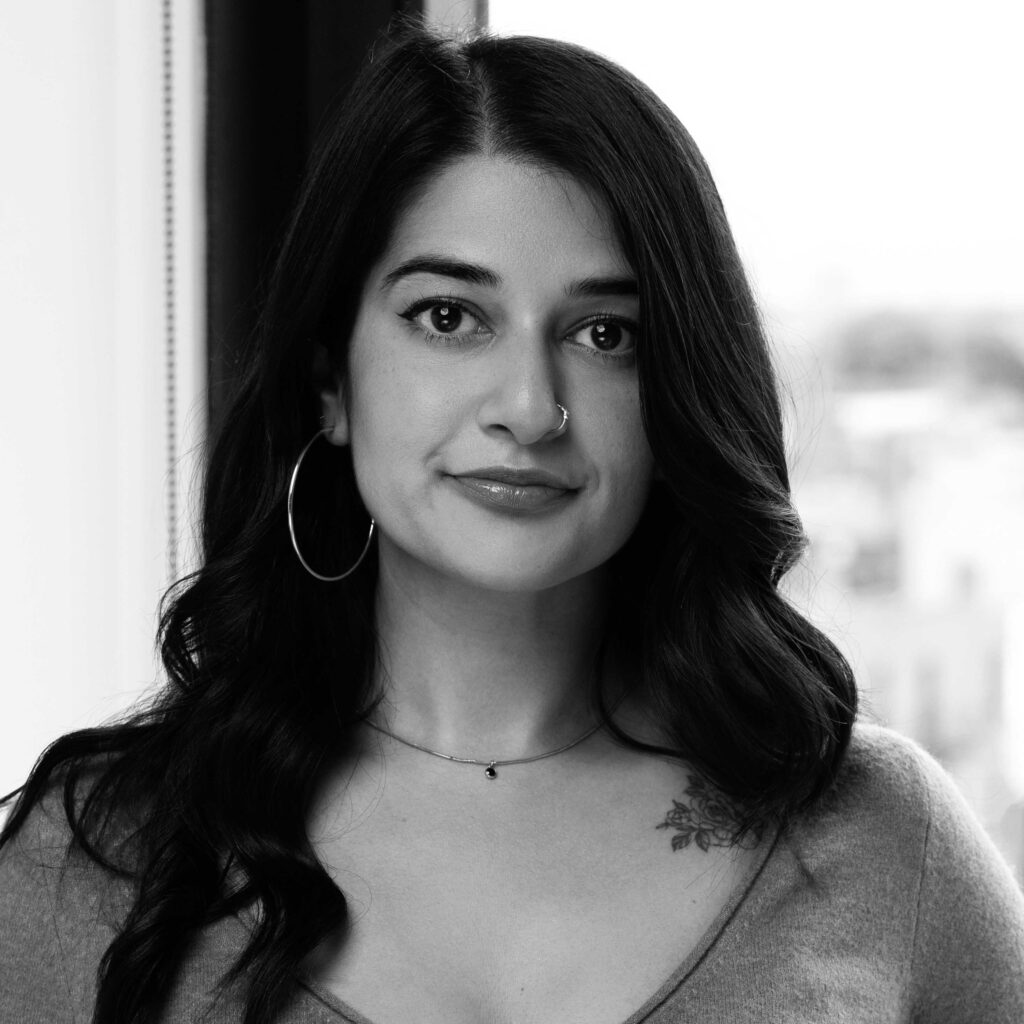The Namesake and the Unnamed
– Nonfiction by Nagma Kapoor –
Featured in issue 14 of Dreamers Magazine and Honorable Mention in the 2023 Sense of Place & Home Contest

It was the morning after Irrfan Khan’s death was announced. He passed away at the age of fifty-three of endocrine cancer, when he was still compelling audiences with a rare tenderness and complexity. We were gathered round the TV in our living room in Whitby. A home that had been untouched for a few months, after the renters left, a few weeks after the covid lockdowns began, before we slipped in.
She was like a hummingbird, always flighty and in movement, distracted, but my mother’s eyes were glued to the screen this time, my sister stopped scrolling through her feed and my father put away his phone for once. We were watching Irfan Khan as Ashoke on The Namesake after years. I’ve watched it every few years since it first came out – transfixed by it each time, new feelings emerging with each re-watch. That time it was different. We were reunited in a family home, all together under one roof after twelve years, mourning the loss of a beloved actor, the loss of our communities, but also reminiscing our lives.
I always feel like I’m watching my parents whenever this movie begins – my mother like Tabu who plays Ashima, vets potential suitors, quietly observing, eyes averted the entire time. My father, the eccentric NRI, returns from abroad to pick a bride. My parents arrange marriage is akin to the couple in the film on the surface. In my mind, these are glimpses into what their moments of getting to know each other might’ve been like. The first time she laughed at a bad joke, their first fight, how it must’ve been like to grow to love each other away from their homes. They hint at some detail, my mother says those were the best years of our lives, but so much of how their lives began are still a mystery.
My parents’ lives were so dissimilar to Ashoke and Ashima outside their arranged marriage in the film and I wonder why they still see themselves in these characters. There is no single immigrant experience, let alone the South Asian Immigrant Experience, but The Namesake is comfort food for one who craves their mother’s homemade dishes, but they are out of reach, in another land, almost all forgotten and not visited enough. Despite the scores of traditions depending on the state, the region, the religion, the dialect you speak in India and even its neighbours – Pakistan, Nepal and Bangladesh, we are all bagged into one – South Asian
Immigrant Identity. This movie is not enough, but something to cling to, even with our differences.
I find myself in between the two generations in The Namesake – the parents from West Bengal in India, and their children, who were born in America. I was never fully formed like those two identities of first or second generation immigrants, but I lie in between and unnamed.
The Namesake is so rooted in the novel by the same name by Jhumpa Lahiri, which I love, but the film brings about a new emotional thread to tug on to, that it does not. Partially it is Irrfan Khan, but also Tabu, and the tender ways in which we see them grow to love each other.
In the beginning of the movie, Ashoke survives a train crash, on the way to his grandfather’s home from Calcutta. My family is Punjabi, from North India, but my father grew up in Calcutta – speaking Bengali more than he spoke his mother tongue. I’ve spent many summers in the Calcutta heat with my cousins, walking through vegetable stalls, standing at the roadside to have phuchkas, a round hollow fried flatbread that is stuffed with chickpeas, a myriad of spices, potatoes, onions and dipped in a salty spicy flavoured water.
My father’s life seems to parallel Ashoke’s in some ways, he reminds me about the Naxalite movement, how it was brimming right when he sat in an exam room in his final year of marine engineering, and how he had to leave mid-exam because of the riots. He also fondly remembers Durga Puja, a ten day long affair, the grandest festival in Calcutta where everyone is dressed in their finest jewels and saris, the streets are filled with parades and music while everyone shares a taste of mishti doi.
There is a part of me that always wonders about this Bengali cultural heritage that I will never truly inherit, despite this city being where my father became himself. Maybe this is how I am rooted in this film – as a question. Even though I am ethnically Punjabi, I was always enamoured by a fantasy world in which I also knew this other half. Instead, I knew neither and continued to drift apart from both over the years.
I see my mother in Ashima as she watches the snow melt from her window with her chin resting on her arms, her wrists lined with white and red bangles – a remnant of their recent wedding. Her story was different from Ashima’s of course, it was a story of escape. Escaping her in-laws in a house full of rules, where she was watched all day, instructed on how to cook, clean and live her life. Still, this rootless feeling, all encompassing, passed down into my sister and I, like our features – the straight black hair, the skinny legs, and the anxiety.
There is this scene that I love replaying, where Ashoke takes a nine year old Gogol, his eldest son, to the end of a long stone bridge in stormy weather, where the water is rushing over in waves. Ashima cradles their second baby – a daughter, in her arms. Ashoke has forgotten the camera in their Jeep so he looks at Gogol reminding him to capture this moment another way:
“Will you remember this Gogol?”
“How long do I have to remember it?”
“Remember it always. Remember that you and I made the journey and went together to a place where there was nowhere left to go.”
It is a reminder to stay present in this journey that my parents took, that I did too, travelling into the unknown with only each other for support, not knowing if the right decision was made, but that a new adventure had begun. Ashoke brings up The Overcoat by Nikolai Gogol, his son’s namesake, as a reminder of the resolution he had made years and years ago after surviving the tragic train accident to travel the world, to live beyond the small towns and communities they had each grown up in – both Ashoke and his son. In the same way, the film presented comfort – the move from India, to Singapore, to Canada and then America and back. Each time it is a reminder of the loneliness and pain that unfolded but also the love, the relationships and the memories that carried me
from place to place.
About the Author – Nagma Kapoor

Nagma Kapoor’s writing has appeared in Livina Press. She is a software engineer by day, writer and poet by night. She grew up in India, Singapore, Canada and the USA. Nagma now resides in Toronto, with the occasional stint in New York. She’s @notnagma on IG & Twitter.
Did you like this story by Nagma Kapoor? To see more like it, checkout our Nonfiction category.
Like reading print publications? Consider subscribing to the Dreamers Magazine!